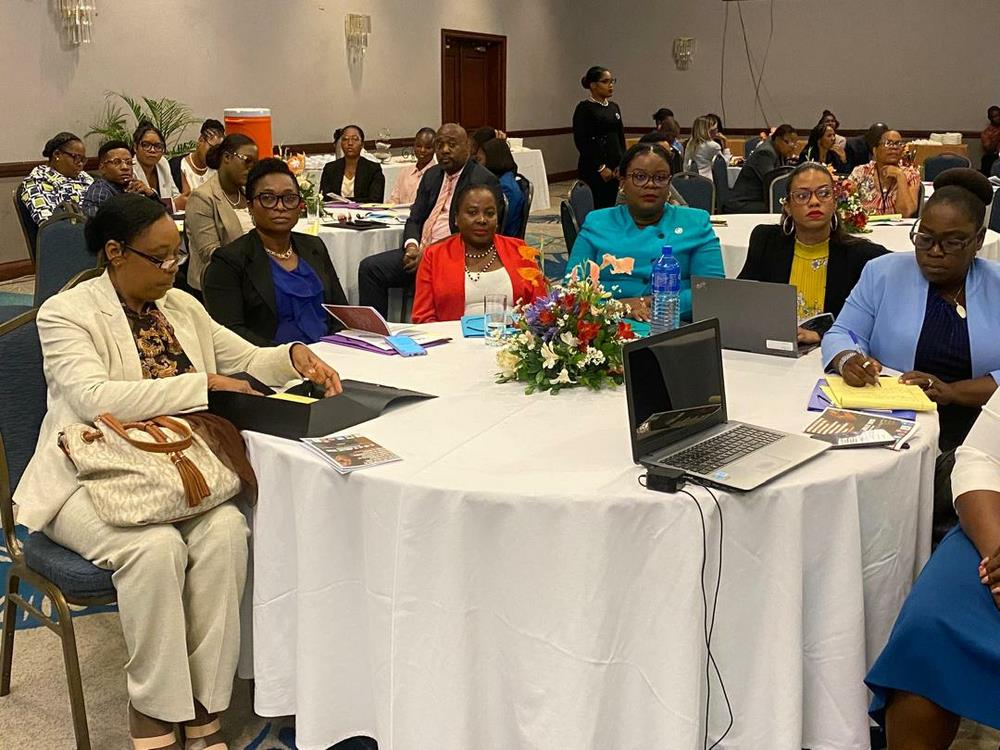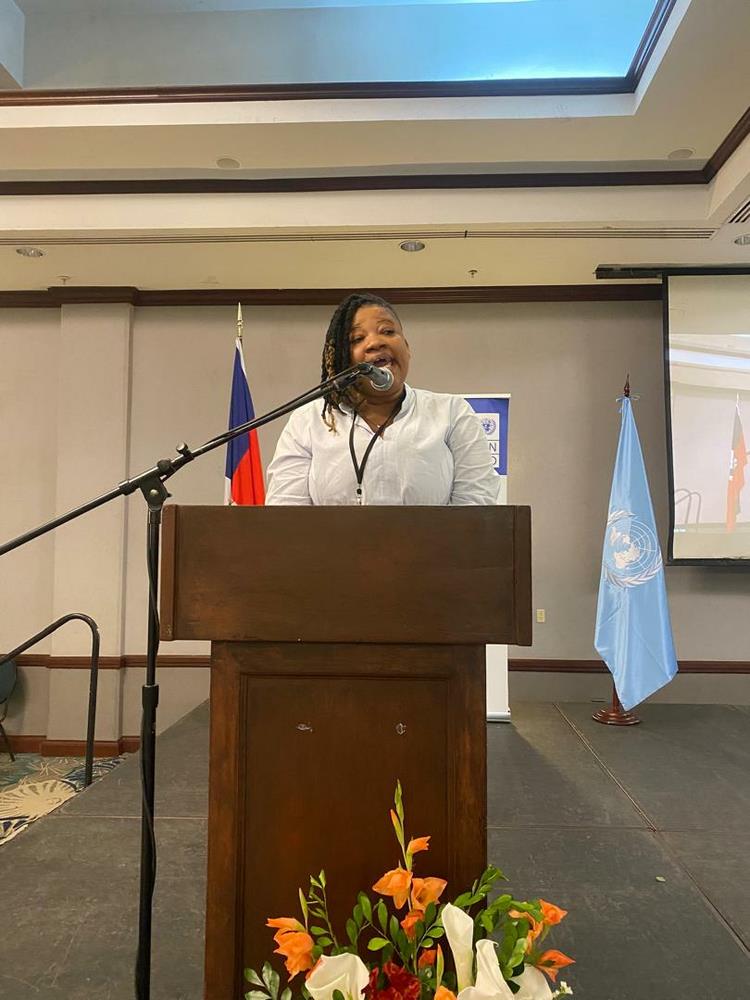Twenty years later, the fight for Women’s rights in Haiti lives on
By: Celine Bussenius (IAWJ Summer Program Coordinator)
 From July 9 to 11, 2025, the International Association of Women Judges (IAWJ) actively participated in a landmark conference in Port-au-Prince, marking twenty years of implementation of the July 6, 2005 decree. A pivotal moment in a country where sexual violence has become a weapon of terror.
From July 9 to 11, 2025, the International Association of Women Judges (IAWJ) actively participated in a landmark conference in Port-au-Prince, marking twenty years of implementation of the July 6, 2005 decree. A pivotal moment in a country where sexual violence has become a weapon of terror.
While hundreds of Haitian women and girls continue to endure daily gang-rapes perpetrated by armed groups, the École de la Magistrature (EMA/ School of Magistrates ) organized this conference under the high patronage of the Ministry of Justice and Public Security. The event brought together over one hundred justice sector actors, predominantly women, underscoring the urgent need for action. The conference also received vital support from the United Nations Integrated Office in Haiti (BINUH) and the United Nations Development Programme (UNDP), enabling this crucial gathering of voices committed to addressing the crisis.
Judge Maguy Florestal, a longtime IAWJ and CHAIFEJ member, served as the primary organizer and driving force behind this initiative. Her leadership and dedicated coordination made it possible to unite key justice sector stakeholders with international partners, creating an essential forum for dialogue and meaningful reflection on these pressing challenges.
True to its mission of promoting gender equality and protecting women’s rights within the judiciary, the IAWJ played a central role in both organizing and ensuring the smooth running of these three days of critical and constructive reflection.
The July 6, 2005 decree marked a turning point in the history of women’s and girls’ rights in Haiti. This groundbreaking legal reform reclassified sexual assault as a crime against an individual rather than against public morals, decriminalized therapeutic abortion, and solemnly affirmed the intangible principle of consent. Yet, twenty years later, as the security crisis worsens, the reality remains grim. Behind these legal advances lie harsh truths: sexual violence continues to be wielded as a weapon of terror by armed groups; impunity remains near total; fear of reprisals keeps many survivors from filing complaints; persistent stigma silences survivors; and victim support services remain severely under-resourced.
The IAWJ found in this gathering a direct echo of its mission to support judges in the fight against sexual violence and foster exchanges of good practices, so that rights written in law can become rights lived by survivors. This holistic approach requires ongoing judicial training, stronger victim support services, public awareness-raising, and improved coordination among all actors in the judicial system.
 Over the three days, the participants shared their experiences, exchanged analyses, and charted potential paths for progress. The discussions highlighted the urgent need to strengthen magistrate training, improve victim reception conditions, reduce procedural delays and coordinate efforts between different actors in the judicial system. Kesner Michel Thermesi, Director General of the EMA, stressed the importance of learning from past mistakes to build a justice system that is both protective and credible, one capable of defending the most vulnerable.
Over the three days, the participants shared their experiences, exchanged analyses, and charted potential paths for progress. The discussions highlighted the urgent need to strengthen magistrate training, improve victim reception conditions, reduce procedural delays and coordinate efforts between different actors in the judicial system. Kesner Michel Thermesi, Director General of the EMA, stressed the importance of learning from past mistakes to build a justice system that is both protective and credible, one capable of defending the most vulnerable.
For the IAWJ, this conference reaffirmed a key truth: no law, however strong, can succeed without committed institutions, trained professionals, and a society willing to break the cycle of impunity. Twenty years after the July 6, 2005 decree, progress is real but fragile, and challenges remain immense.
Still, the energy and determination expressed during these three days prove that change is possible. Transforming legal texts into effective justice is a long-term endeavor and a shared responsibility. Each step taken toward real protection of survivors is a victory that gives meaning to the daily commitment of judges, lawyers, human rights defenders and all those who refuse to let silence and fear dictate the law.
Through its participation in this conference, the IAWJ renews its commitment to make justice a shield against violence, a source of hope for survivors, and a guarantee of equality. Beyond alarming statistics and painful realities lie women, girls, and lives to protect. This is the essence of the IAWJ’s mission, to remind the world that behind every case file is a human dignity to uphold, and justice to deliver. The IAWJ will continue to stand alongside institutions around the world in this vital fight for equality and justice.